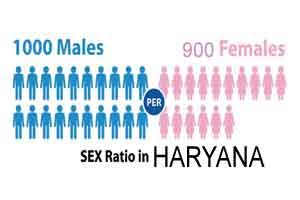- Home
- Medical news & Guidelines
- Anesthesiology
- Cardiology and CTVS
- Critical Care
- Dentistry
- Dermatology
- Diabetes and Endocrinology
- ENT
- Gastroenterology
- Medicine
- Nephrology
- Neurology
- Obstretics-Gynaecology
- Oncology
- Ophthalmology
- Orthopaedics
- Pediatrics-Neonatology
- Psychiatry
- Pulmonology
- Radiology
- Surgery
- Urology
- Laboratory Medicine
- Diet
- Nursing
- Paramedical
- Physiotherapy
- Health news
- Fact Check
- Bone Health Fact Check
- Brain Health Fact Check
- Cancer Related Fact Check
- Child Care Fact Check
- Dental and oral health fact check
- Diabetes and metabolic health fact check
- Diet and Nutrition Fact Check
- Eye and ENT Care Fact Check
- Fitness fact check
- Gut health fact check
- Heart health fact check
- Kidney health fact check
- Medical education fact check
- Men's health fact check
- Respiratory fact check
- Skin and hair care fact check
- Vaccine and Immunization fact check
- Women's health fact check
- AYUSH
- State News
- Andaman and Nicobar Islands
- Andhra Pradesh
- Arunachal Pradesh
- Assam
- Bihar
- Chandigarh
- Chattisgarh
- Dadra and Nagar Haveli
- Daman and Diu
- Delhi
- Goa
- Gujarat
- Haryana
- Himachal Pradesh
- Jammu & Kashmir
- Jharkhand
- Karnataka
- Kerala
- Ladakh
- Lakshadweep
- Madhya Pradesh
- Maharashtra
- Manipur
- Meghalaya
- Mizoram
- Nagaland
- Odisha
- Puducherry
- Punjab
- Rajasthan
- Sikkim
- Tamil Nadu
- Telangana
- Tripura
- Uttar Pradesh
- Uttrakhand
- West Bengal
- Medical Education
- Industry
Haryana sets up sex ratio monitoring system for Panipat

Chandigarh : The Haryana government has set up an online system for Panipat to monitor the sex-ratio in the district as part of the 'Beti Bachao, Beti Padhao' programme.
The system, called the sex ratio monitoring dashboard, will have the data of child sex-ratio collected from all villages by the Health and Women and Child Welfare Departments every month.
It will also have the data on critical villages where more attention was required towards skewed child sex-ratio and steps needed to taken to set up the efforts accordingly, an official statement said.
The dashboard had been developed in association with National Informatics Centre (NIC) as a pilot project.
The dashboard is also proving to be an effective tool for enhancing ground-level coordination between the Health and Women and Child Welfare Departments.
The dashboard is also proving to be an effective tool for enhancing ground-level coordination between the Health and Women and Child Welfare Departments, the release said, adding this was disclosed during a meeting of Chief Minister Manohar Lal Khattar with his good governance associates and administrative secretaries here.
Apart from it, the Chief Minister also decided to further simplify the grievances redressal mechanism and implement new schemes, which include having a permanent cattle markets on public private partnership (PPP) mode.
A Bill to amend the provisions of the Haryana Cattle Fairs Act, 1970 would be introduced in the upcoming Session of the Haryana Vidhan Sabha.
On the issue of stray cattle, it was decided that 11 districts would adopt the community-driven Fatehabad model for tackling the menace.
Nuh has become the first stray cattle-free district of the state, whereas Yamunanagar and Fatehabad would become stray cattle-free by the end of February, while the remaining eight districts by June 30.
A workshop would be held for the remaining districts in Sonipat on March 16.
With a view to monitor registration and disposal of police complaints, Khattar directed to explore the possibility of establishing an independent complaint registration mechanism using the National Emergency Response System, and funding from the Central Government.
He also directed the Haryana police to ensure that all complaints received at the police stations were uploaded on the 'HarSamay' portal, which is connected with the Crime and Criminal Tracking Network and Systems (CCTNS), to ensure monitoring of every complaint.
Also the Chief Minister, directed to set up a dedicated 'Har Samay Swagat' desks in all the police stations, apart from a desk in a public space in each district as a pilot project to ensure that all complaints were uploaded on the system.
Next Story


